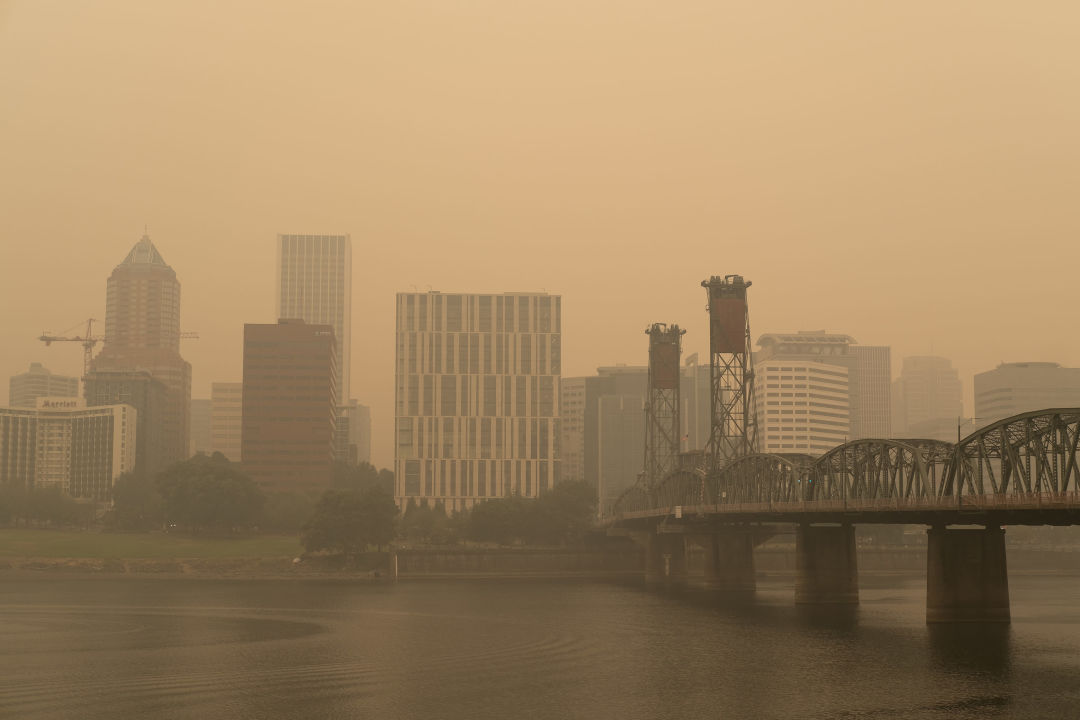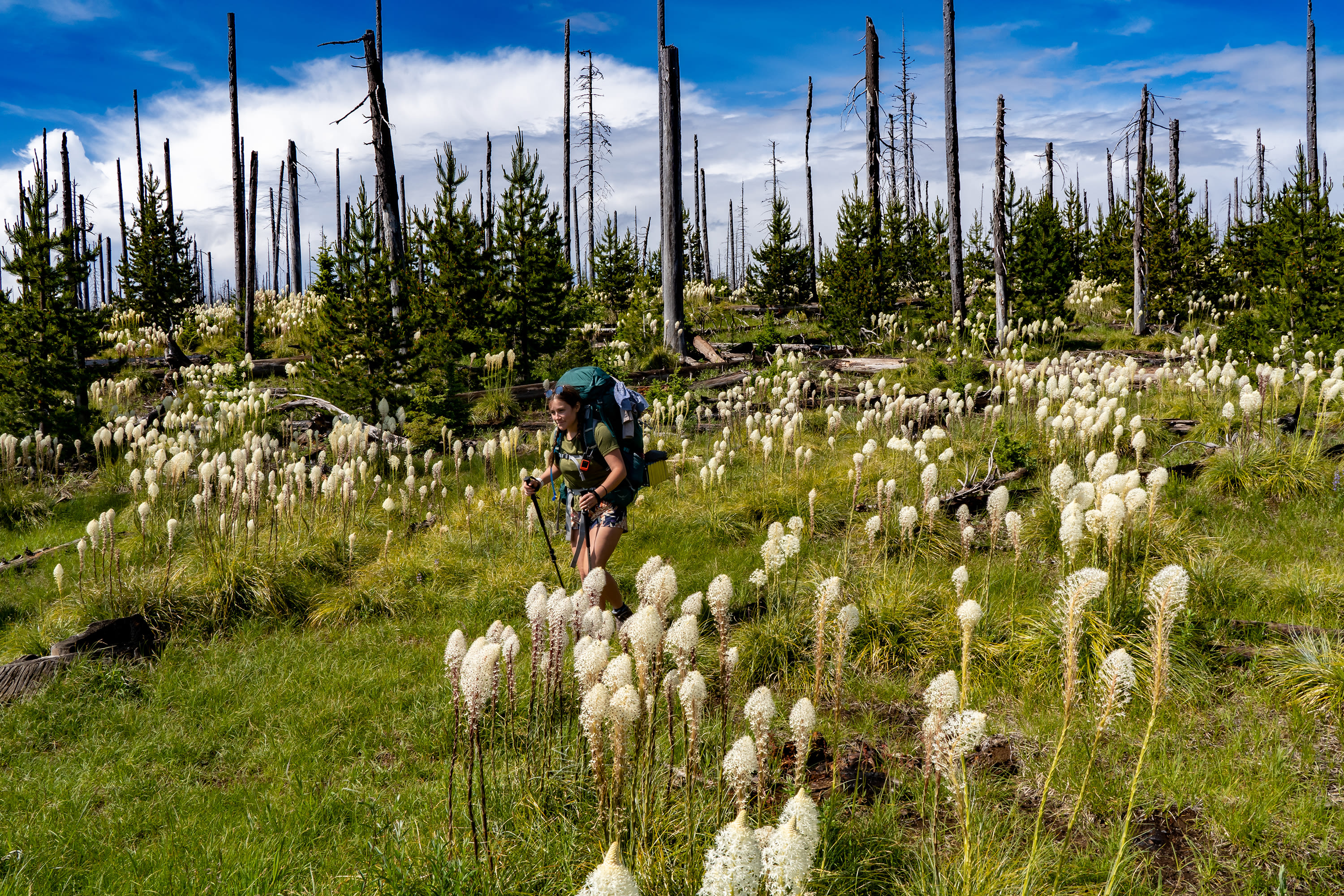When Did Oregon Summers Get So Smoky?

Image: WEBB SHOW/shutterstock.com
Longtimers lament all sorts of change—but when it comes to wildfire season, there’s empirical backing for bemoaning that things just aren’t like they used to be. According to a new report by the Oregon Department of Environmental Quality, the number of days with unhealthy, smoky air started to skyrocket around 2012. And the trend shows no signs of slowing.
Even the Portland metro area, which has historically dodged this kind of air pollution, moved into the line of fire. The city’s only “very unhealthy” and “hazardous” days on record—the two highest possible Air Quality Index scores—occurred in 2020. That year, more than 1 million acres burned statewide, forcing tens of thousands of Oregonians to evacuate and sending plumes of hazardous smoke throughout the region.
But while 2020 stands out, it doesn’t stand alone. In Portland over the 27-year span between 1985 and 2012, zero days passed the “unhealthy” AQI threshold where the general public becomes at risk of experiencing health effects. Over the following decade, the city saw a week’s worth of unhealthy air pollution days (and nearly a month’s worth of days considered unhealthy for sensitive groups, like infants and people with asthma). The comparison looks even bleaker in dryer areas of the state: over the same period, Bend’s three unhealthy days skyrocketed to 29. Medford went from 14 unhealthy days to 62.
Historically, Oregon’s first blazes came in late July and wrapped up in early September. Now, the season begins in mid-July and doesn’t peter out until early October. As the wildfire season grows longer, health risks grow, too, with those fighting fires at greatest risk of experiencing long-term effects: 25 years of long-season work as a wildland firefighter equate to a 43 percent higher risk of lung cancer, according to a Forest Service study.
What can be done? We’re more or less locked into the climate change conditions that got us here, per the Environment Director of the Organisation for Economic Co-operation and Development. But we can improve our response: In 2023, the University of Oregon launched a research hub dedicated to reducing the risks associated with wildfire smoke. Oregon has learned to better combat the increasingly common blazes, incorporating precautionary power shutoffs and camera monitoring of areas prone to wildfires.
And, now more than ever, you can’t invest in a HEPA filter too soon.




